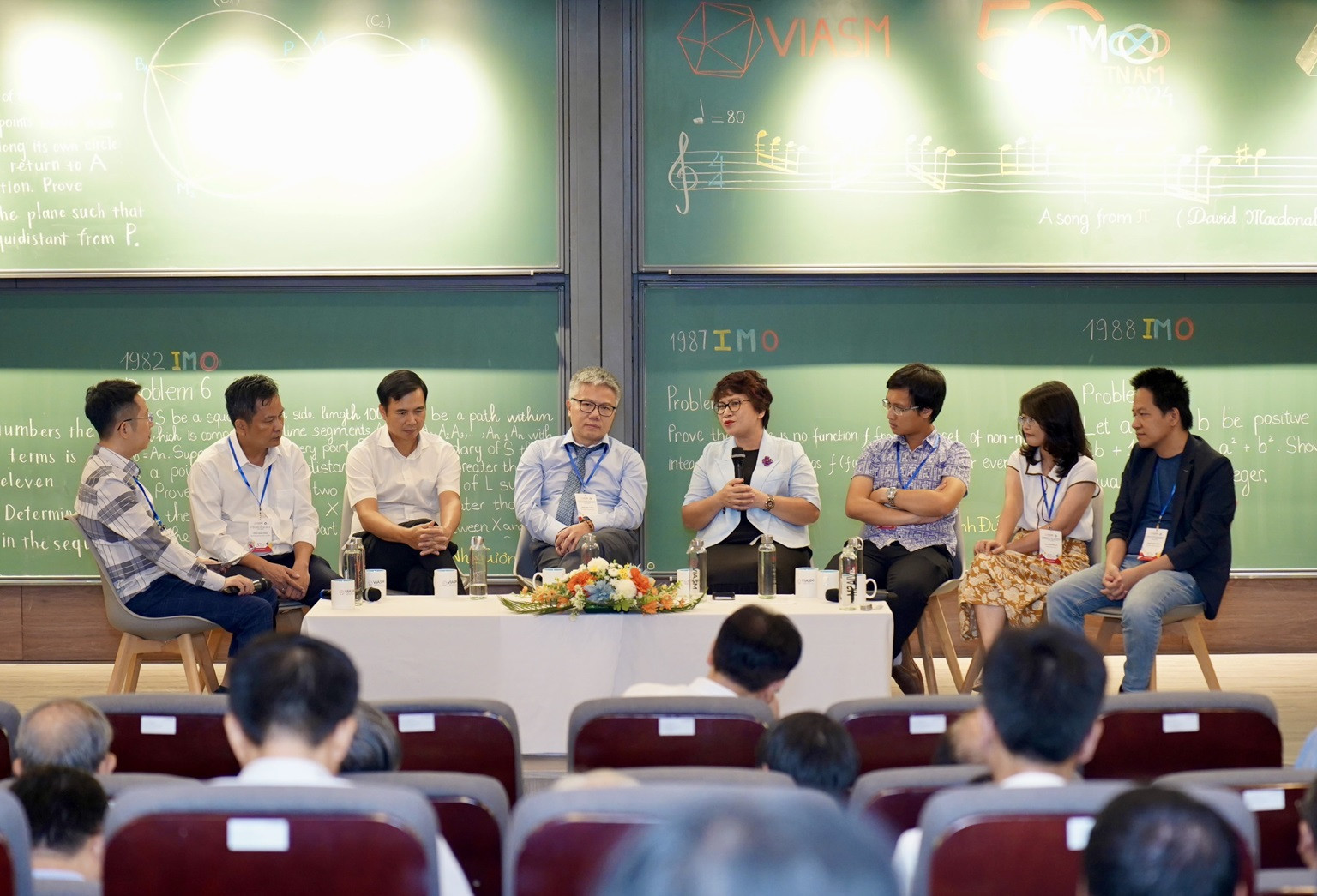
The Vietnam Institute for Advanced Study in Mathematics and Vietnam Mathematics Association on August 10 organized festivities to celebrate the 50th anniversary of Vietnam attending IMOs (1974-2024).
Vietnam began attending the competition in 1974 and has sent 48 competition teams with 288 members to IMOs, including 18 females.
Vietnam has won 271 medals at IMOs, including 69 golds, 117 silvers and 85 bronzes. 94 percent of students attending the competition were medalists.
In the last 50 years of IMOs, 10 Vietnamese students got perfect scores, while 10 students got two gold medals each.
With unofficial statistics, Vietnam was always among the world’s top 10 competition teams in most of IMOs it attended.
Le Anh Vinh, head of the Vietnam Institute of Education Science, who was the head of the Vietnamese teams of attendants at IMOs over the last 10 years, said if considering the achievements from 2013 to 2024, Vietnam was among the top 5-15. 2017 was the year when Vietnam ranked third in the world, with 4 golds, 1 silver and 1 bronze.
If counting the total gold medals competition teams won at IMOs, Vietnam ranks eighth in the world with 69 golds. This means that Vietnamese students won 1.44 gold medals each year, if noting that Vietnam attended 48 competitions.
In 2013-2024 alone, Vietnam ranked fifth in the world with 1.92 gold medals each year (23 gold medals in total). In that period, five out of 10 Vietnamese competitors won two golds each.
While confirming that the achievements are ‘very encouraging’, Vinh stressed that other countries have also made big progress and their achievements are in no way inferior to Vietnam’s.
Thailand, for example, in the last 10 years, has won 21 golds, while the figure was 19 for Singapore.
According to Vinh, Vietnam ranks in the second group of the world (top 5-15). Meanwhile, the four leading countries are China, the US, South Korea and Russia.
In order to compete with top teams of attendees, Vietnam should refer to the way the other countries choose students for their selected teams to attend competitions. The process applied by the countries is complex and takes a lot of time as students need to go through many rounds.
Meanwhile, the process is very simple in Vietnam. In Round 1, students attend the competition for excellent students at city’s level. Round 2 is the competition for the whole country and Round 3 is the time for selecting competition team members.
“Vietnam can gain big achievements because it has a large network of schools for the gifted developed in nearly all cities and provinces,” Vinh said.
“However, there is still a gap between us and the four top countries in selecting excellent students,” he commented.
Professor Ngo Bao Chau, a Fields medalist, said there are questions that need to be considered. What should be done to expand the movement of young people studying mathematics, and to make mathematics and other basic sciences a choice for the youth?
Vietnam recently has talked about preparing human resources for AI and semiconductors. However, how can Vietnam master technologies if schools are attempting to cut the time for mathematics and other subjects about basic sciences at both general and higher education levels?
Chau believes that in the era of information boom and AI, it would be better not to fill students’ head with new knowledge. What needs to be done is to return to the basics, basic principles of argumentation and basic thinking.
Doubts have been raised recently about encouraging students to study mathematics. Many people, including once-mathematicians, believe that there is need to spend big money just to train small teams of mathematics competitors. Meanwhile, Vietnam doesn’t need too many mathematicians, but needs technologies which can help the country improve industrial production.
In reply, Chau said Vietnam spends big money not just to send excellent students in mathematics to IMOs, but to benefit from the students in 20 years.
Thanh Hung